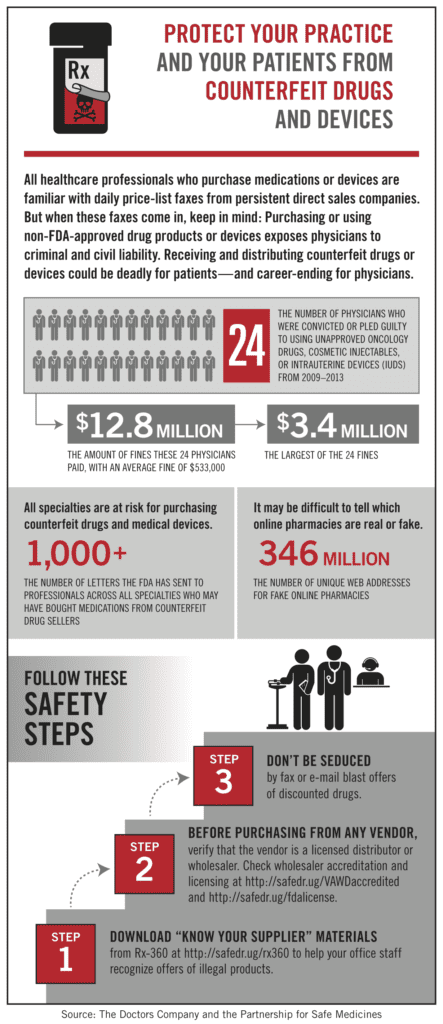Billing Insurance Companies for Imported Drugs is a Crime
In November 2012, Tennessee oncologist William Kincaid pled guilty to purchasing cancer drugs from unauthorized distributors who were hawking counterfeit drugs with no active ingredient. Dr. Kincaid deprived his patients of needed cancer treatments and endangered their lives, but–as with Al Capone–the Federal government’s case against him focuses on fraud. Dr. Kincaid has been charged with a felony: “introducing misbranded drugs into interstate commerce with the intent to defraud the state's Medicaid program and other health-care purchasers.”

What is "intent to defraud the state’s Medicaid program?" Oncology practices purchase cancer treatments directly from distributors to administer them to their patients, and they bill Medicare and insurance companies directly for the medicines. Dr. Kincaid purchased discount cancer drugs that proved to be counterfeit and billed Medicare and insurers as if he had paid the full price for legitimate drugs. According to the Wall Street Journal, he ‘earned’ $500,000 by shaving the costs of his prescription drugs.
Dr. Kincaid isn’t alone. In 2012, Dr. Isabella Martire in Maryland saved nearly $800,000 by illegally importing cancer drugs from the United Kingdom, but was forced to repay $514,000 to government healthcare programs when she was caught. A similar case in New York was prosecuted in 2008, and it cost the oncologist $275,000 in repayment.
Why are oncology practices turning to foreign drugs to save money now? The Wall Street Journal explains that when Congress introduced reform of Medicare pricing policy in 2005, it reduced Medicare reimbursement for cancer treatments to more closely match the prices doctors paid for the drugs. Since the reimbursement changes, oncology practices have found their profits significantly reduced. A market for less expensive foreign drugs sprang up to make their own profit from medical practices that were trying to maintain their profitability. Some doctors (and other medical professionals) are willing to sacrifice safety to make more money.
The problem, of course, is that insurance fraud is illegal. Medical professionals who bill government health programs for illegally imported drugs are prosecutable under the Federal False Claims Act, which, among other things, forbids “knowingly presenting, or causing to be presented a false claim for payment or approval” and “knowingly making, using, or causing to be made or used, a false record or statement material to a false or fraudulent claim.”
The government has every intention of protecting Americans by prosecuting people who commit fraud by billing government health programs for misbranded drugs. As Gerald T. Roy, of the Kansas City Regional Office of Investigations for the Department of Health and Human Services stated last year, "these investigations and their outcomes not only protect the taxpayer from waste, fraud and abuse but, more importantly, insure our Beneficiaries are not provided misbranded or adulterated drugs that may adversely impact their health. We will continue to aggressively pursue those who seek to defraud the Medicare and Medicaid programs by administering non-FDA approved products and services.”